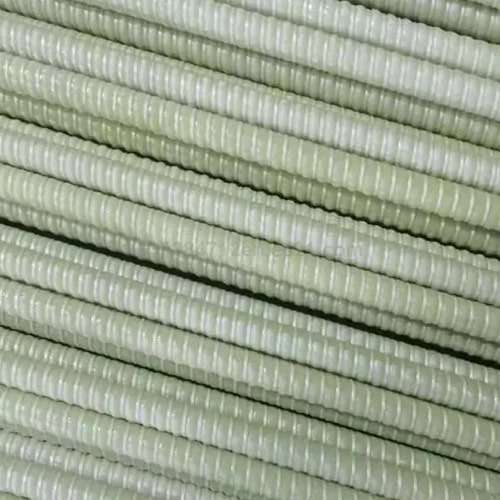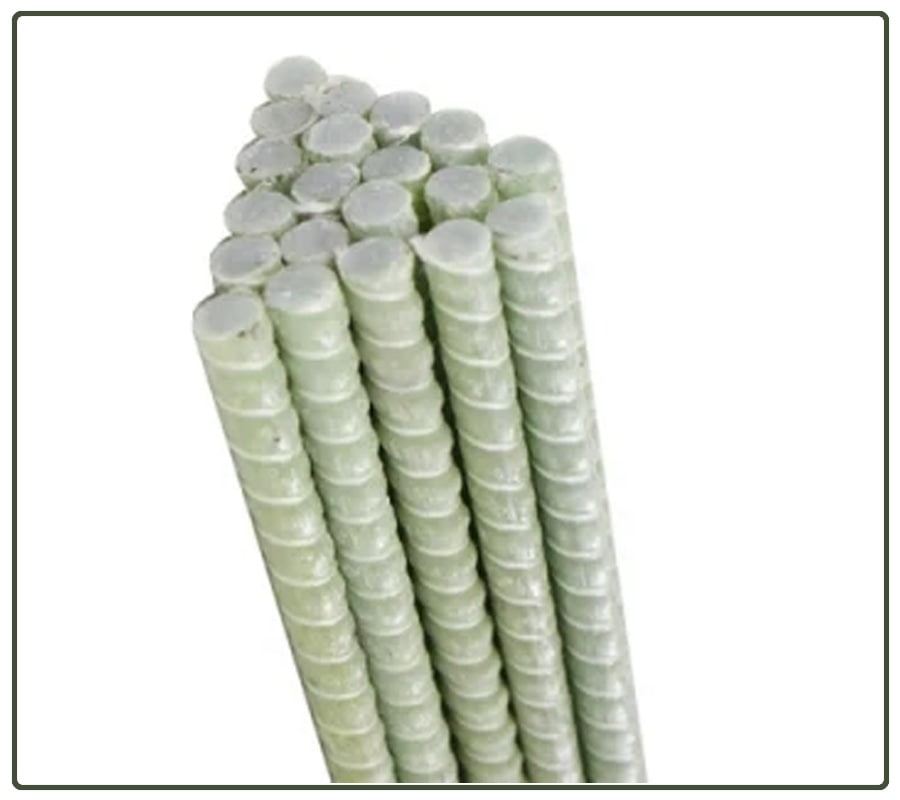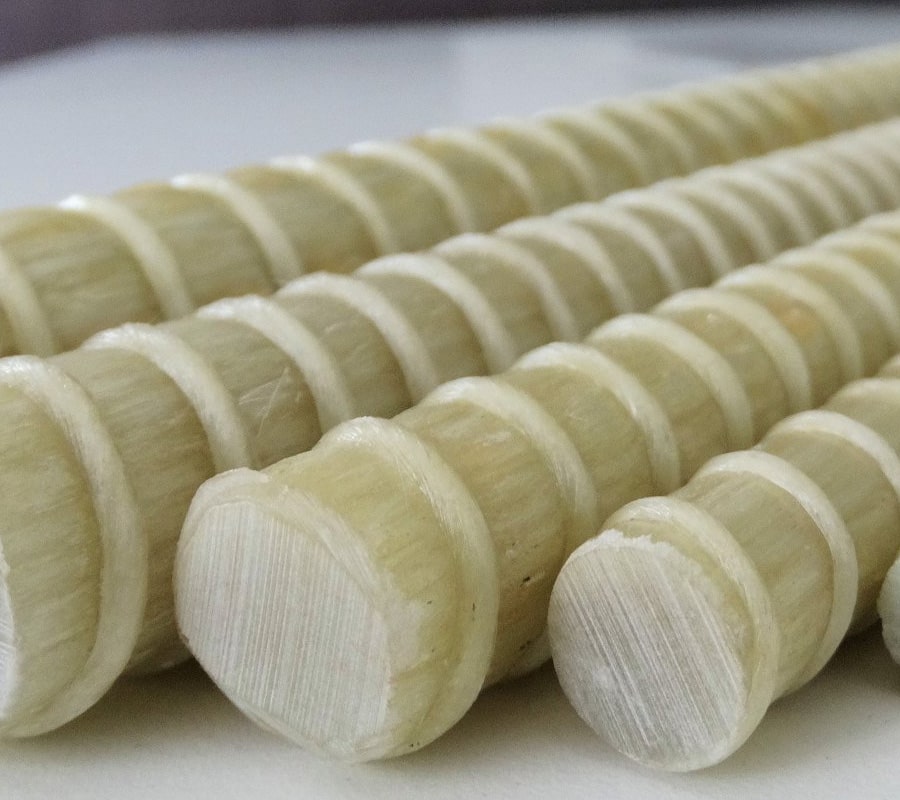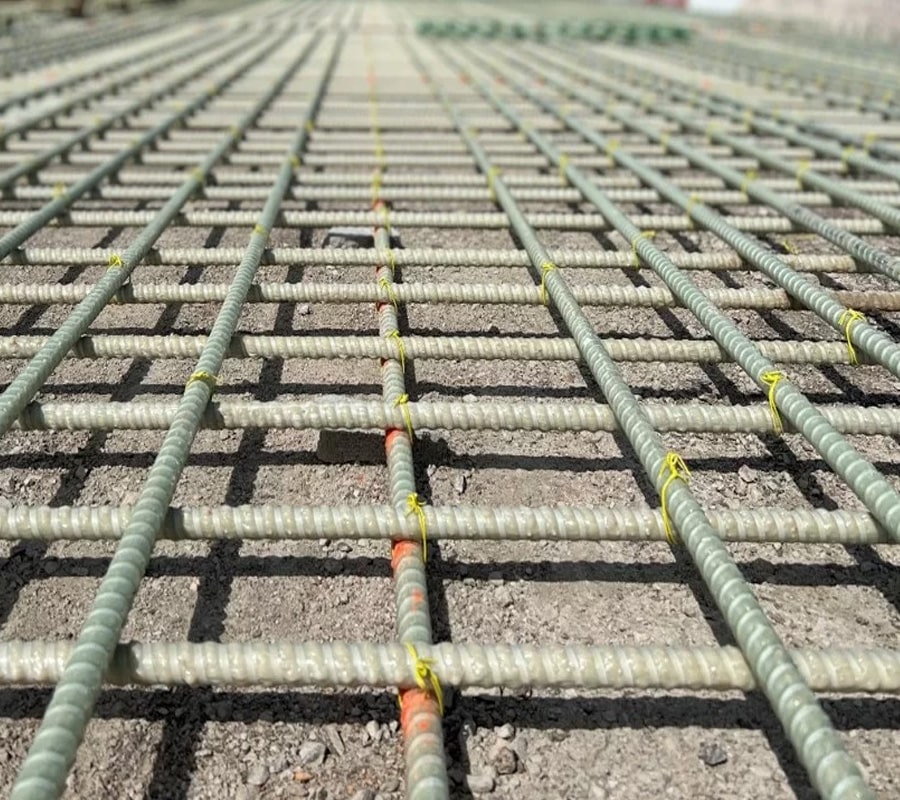FRP Rebar
FRP rebars – a groundbreaking solution for civil structures that require enhanced corrosion resistance. FRP Rebars are composed of glass fibers and resin. The glass-fibers provide stiffness and strength to the bars, while the vinyl ester or polyester resin delivers exceptional corrosion resistance, making them ideal for use in harsh chemical or alkaline environments. At ECPL, we understand the importance of longevity and durability in civil engineering structures, which is why we believe FRP bars are an essential solution. Our FRP rebars offer a long-lasting solution to corrosion problems, increasing the life expectancy of the structures in which they are used. Explore our website to learn more about our products and how they can be incorporated into your civil engineering projects.

Why FRP Rebars?
FRP (Fiber Reinforced Polymer) rebars have become increasingly popular as an alternative to traditional steel reinforcement bars in civil engineering structures. This is due to several reasons that make FRP rebars a superior choice in many applications.
Firstly, FRP rebars are highly corrosion resistant. Unlike steel, which can corrode when exposed to harsh environments such as saltwater, chemicals, or extreme temperatures, FRP rebars do not corrode. This makes them ideal for use in structures located near coastlines, chemical plants, or in areas with high humidity.
Secondly, FRP rebars have a high strength-to-weight ratio. This means that they can provide the same strength as steel reinforcement at a much lighter weight. FRP rebars are 4 times lighter than steel and 2.5 times stronger than steel. This feature makes FRP rebars ideal for use in structures that require lightweight construction, such as bridges or high-rise buildings.
Thirdly, FRP rebars are non-magnetic and non-conductive. This feature makes them ideal for use in structures that require electromagnetic neutrality, such as hospitals or laboratories.
Overall, the use of FRP rebars offers a cost-effective, durable, and sustainable solution for construction projects. Their superior corrosion resistance properties and high strength-to-weight ratio make them a popular choice for civil engineering structures. Additionally, their non-magnetic and non-conductive properties make them suitable for specialized applications.
FRP Rebars Features:
- Absolute Corrosion Resistance
- 2x Tensile strength compare to steel
- 75% lighter weight than steel
- Last longer service life without maintenance.
- Competitive and consisting pricing
- Electrical & Thermal insulator
- Excellent bond strength with Concrete
- Transparent to radio frequencies
FRP Rebars Applications:
- RCC Roads, Pavements
- Parking garages
- Chemical plants
- Structures built in or close to sea water
- Highway Construction
- Bridge deck slabs
- Bridge Enclosures
- Reinforcement of RCC tanks.
- Swimming pool
- Radio frequency sensitive areas
- Hospital MRI areas
- Tunnel Boring Machine (TBM) ‘Soft eye’ Openings in Metro rail.



